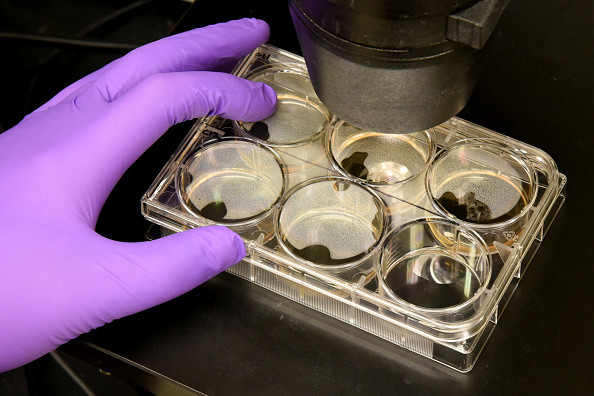Macular degeneration: 3 people left blind after unproven stem cell treatment at Florida clinic
Clinic recruited patients desperate for care and charged them for treatment with little basis in evidence.

Three people have lost their sight after receiving an unproven treatment in a Florida stem-cell clinic for macular degeneration, a common cause of sight deterioration in older people.
The treatment, which purported to use stem cells to improve vision, led to haemorrhage, detachment of the retina, dislocation of the eye's lens and ultimately complete blindness, reports a study on the patients published in the New England Journal of Medicine.
Two of the patients found the clinic offering the therapy on the US's ClinicalTrials.gov website. It was listed as "Study to assess the safety and effects of cells injected intravitreal in dry macular degeneration".
But it was not a genuine clinical trial. The clinic asked for a payment of $5,000 (£4,100) for the treatment from each of the patients, who were all women over the age of 70.
"I'm not aware of any legitimate research, at least in ophthalmology, that is patient-funded," said study co-author Thomas Albini of the University of Miami – where two of the three patients were later treated for complications of the therapy – in a statement.
Fat cells were removed from the patients' abdomens, which were then treated with enzymes in an attempt to turn them into stem cells. These cells were mixed with plasma from the patients' blood and injected into the patients' blood in a process lasting less than an hour.
The mixture was injected into both eyes, which the study authors note is another red flag. A safer approach would be to do the procedure on one eye only, in case of adverse effects.
It's thought that mixture may have changed to myofibroblasts once in the eye. These cells are associated with scarring. Even if the cells injected into the patients' eyes were genuine stem cells, there is no solid evidence to expect that they would improve their sight.
Tips for telling whether a stem cell trial is genuine
Albini and Goldberg advise patients interested in taking part in genuine clinical trials of stem cell therapies to:
- Check whether the trial is listed on the website A Closer Look at Stem Cells, which is run by the International Society for Stem Cell Research
- Check that the trial is affiliated with a university or academic medical centre
- Don't pay for the treatment. Bona fide trials are likely to have been funded from a medical research funding organisation and not require a fee from patients.
"There's a lot of hope for stem cells, and these types of clinics appeal to patients desperate for care who hope that stem cells are going to be the answer, but in this case these women participated in a clinical enterprise that was off-the-charts dangerous," said Albini.
"There's no excuse for not designing a trial properly and basing it on preclinical research," added study Jeffrey Goldberg, also a study author, of Stanford University's School of Medicine.
It is "extremely unlikely" that any of the patients will regain their vision, Albini said.
"There's a lot of hope for stem cells, and these types of clinics appeal to patients desperate for care who hope that stem cells are going to be the answer, but in this case these women participated in a clinical enterprise that was off-the-charts dangerous," he said.
© Copyright IBTimes 2025. All rights reserved.






















